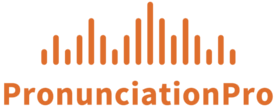Interviewing for a new job can put anyone on the edge of their seat, and for those being interviewed in their second language, the edge of that seat can seem… even edgier.
Employers who are engaged in the hiring process will be listening closely, and if English is your second language, they won’t just be listening to the content of your message—they’ll also be listening to how you say it.
Speak clearly and slowly: Nerves can cause us to speed up our speech when being interviewed. If you have the jitters, remember rule number one: slow down. Pace yourself, relax, and remember, it’s okay that English is your second language. If you find yourself slipping, use it to your advantage by reminding your interviewer that you speak two (or more) languages in a lighthearted, ingratiating manner. Most important: for the person you’re speaking to be able to understand what you’re saying without straining to do so.
Make sure you have a good grasp of the /th/ sound in English: The /th/ is the most common consonant sound in English, and is usually the most difficult part of learning American English pronunciation for people from China, Russia, and India. Practice your /th/ sound and get it to the best possible place before your interview.
Stress/Emphasize keywords or ideas: If the person conducting the interview could only hear a few words of what you’re saying, which words would you want them to hear to ensure they understand the points you’re making? Emphasize those words. Don’t be afraid to pause, and avoid nonword filler like “um” as best you can.
Use simple but strong vocabulary: Don’t try and impress a potential employer with a big vocabulary—it can be off-putting for some, and for others it may seem like you’re trying to hard. Instead use simple, clear, concise language and focus on being understood.
Body language: What you “say” with your body counts a lot. To convey calmness and confidence, keep your hands in your lap, sit tall, don’t fidget, and never cross your arms or put your hands in your pockets. Always make eye contact, and smile where appropriate. Don’t tap your feet, and if possible, do not cross your legs. “Open frame” body language with uncrossed, relaxed limbs will send a message that you are confident, comfortable, and ready for the job!
